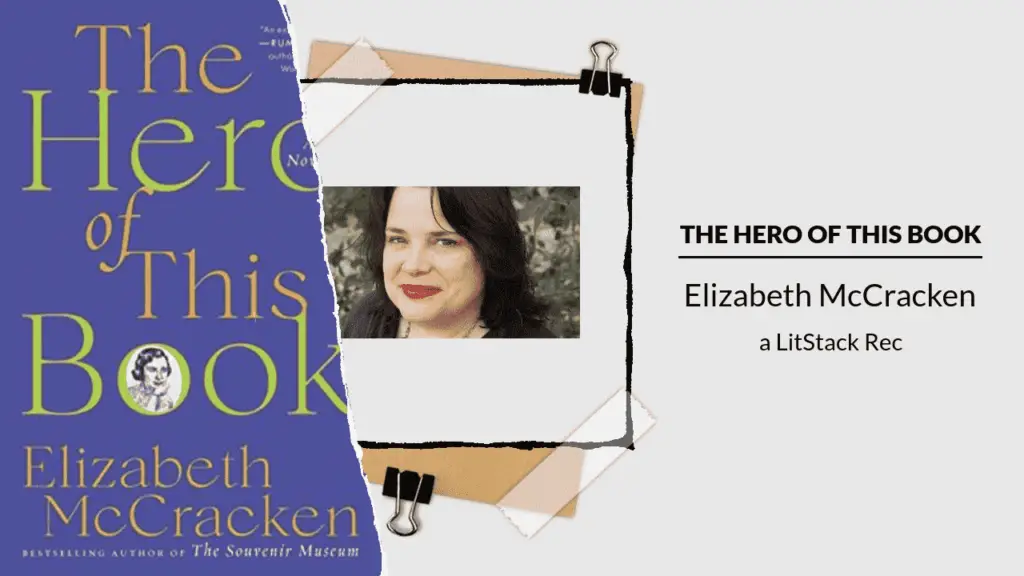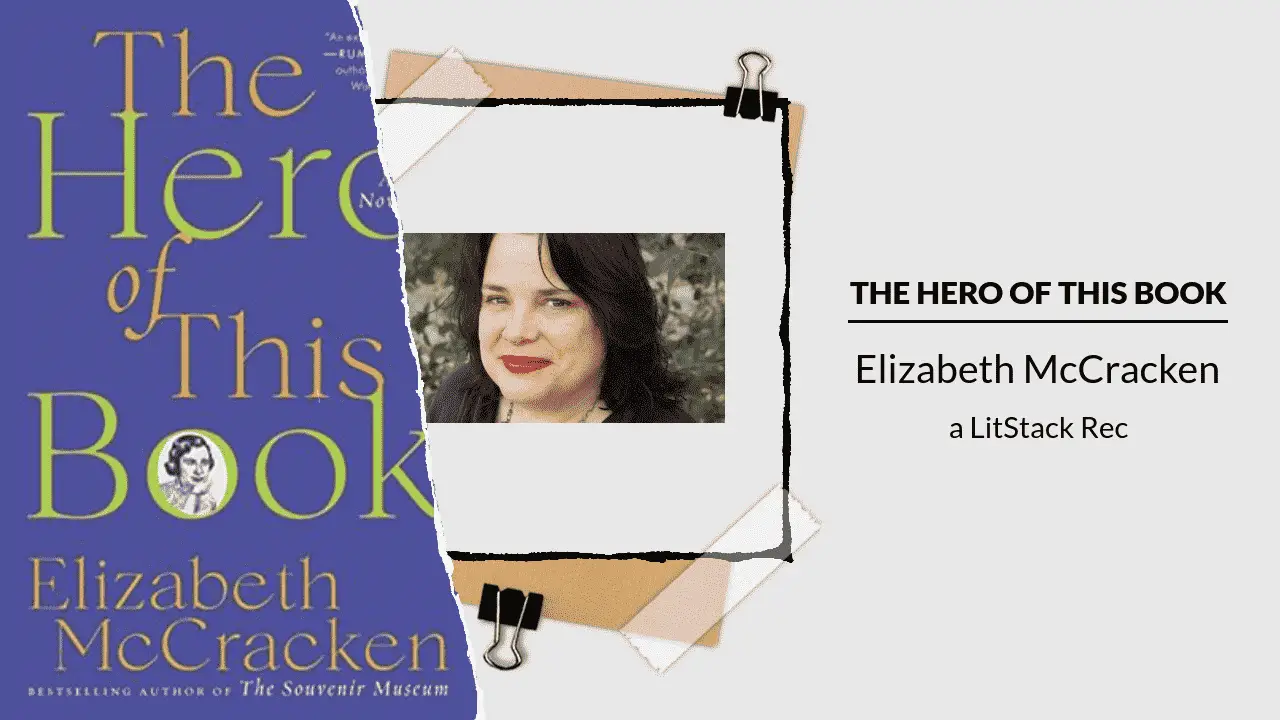
Table of Contents
Our Litstack Rec Of The Hero Of This Book
“Your family is the first novel you know,” writes Elizabeth McCracken in The Hero of This Book—a textual house of mirrors that blends the novel, memoir, and writing craft—a book unlike any other you’ve read, and a page-turner as well.
Blurring The Line Between Fact And Fiction
I’m a fan of McCracken’s fiction, and her previous memoir, “An Exact Replica of a Figment of My Imagination.” In The Hero of This Book, the narrator is a character much like McCracken herself, but the line between fiction and real events is intentionally blurred. “The fictional me is unmarried, an only child, childless,” she tells us. “The actual me is not.”
This unnamed narrator (“I hate novels with unnamed narrators. I didn’t mean to write one,” she tells us) is the adult daughter of a fiercely individualistic mother, Natalie, and like all daughters, has a story of her mother to tell. The novel is framed around trips to London, ones the narrator takes with her mother after her father’s death, and alone after her mother dies.
The solitary trip especially, occasions full and vivid recollections—of her mother as she knew her growing up in Massachusetts, stories she’d been told of her childhood and youth, as a wife to her equally sui generis father, and the brief, but happy time in which her widowed mother had the freedom, relative mobility, and means to travel with her daughter as a companion and friend.
Both mother and daughter love the theater, museums, riding in taxi cabs, and walking the streets of London. A lover of airport margaritas before lunch, of clothes and shoes, antiques and art, her mother has an irrepressible spirit that counters her physical limitations. It’s a point at which the blurring of the factual and fictional takes place.
A True Story Built On Invention
The story doesn’t rely on a mother-daughter conflict, but refreshingly, on kindred sensibilities that see the world in like-minded ways. McCracken’s way with detail is unexpected, always trenchant, and unorthodox while being totally relatable (because aren’t all families messy in their own ways?). The novel’s narrative tension lies in the narrator’s position as both unreliable and highly reliable—that is, trustworthy in her untrustworthiness as she portrays her characters and what this particular relationship felt like. At the same time, she points out the invention that lies at the heart of the novel.
The narrator’s mother, Natalie, both fictionally and factually, is an unforgettable character. An academic, and twin to a younger sister, she dealt with lifelong cerebral palsy and failed surgeries that required her to walk with two canes. The details of her daily life—the shoes that don’t fit, the dozens of a drugstore reading glasses, the brooches that serve to keep straps on her too-narrow shoulders, and the cluttered house where she and her academic husband live among their art, books, tchotchkes, and appliances (including a collection of waffle irons) bring her to life.
The narrator’s parents, we learn, are a “a sight gag,” her father six foot three, a large man with large appetites, a stutter, and a temper; and her diminutive mother, four foot eleven on a good day, with wild black hair in a bun (of Jewish heritage, she was sometimes referred to as “oriental”), and a fondness for cracking jokes at her daughter’s expense.
A Novel Of Writing Craft In Real Time
Plot, McCracken tells us, occurs in what characters feel, and in a beautifully organic way, The Hero of This Book is also a book about writing craft—what it is to be a writer and to find one’s subject and voice. There’s plenty of sage advice here, shown in real time in the novel’s hybrid form. McCracken dislikes the term autofiction, claiming not to know what it means: “it sounds like something written by a robot, or a kiosk, or a European.”
And on writing a memoir, she advises: “If you want to write a memoir without writing a memoir, go ahead and call it something else. Let other people argue about it. Arguing with yourself or the dead will get you nowhere.”
As if to demonstrate her position on writing and characters, as McCracken’s narrator walks the streets of London, tells us, “I kept walking, it’s not much of a plot. As a fictional character, I do very little of consequence, even though as a writer, my favorite thing about fiction is its ability to anatomize consequence.”
Many Miracles In This Beautiful, Engaging Book
That idea, that fiction analyzes consequences, explains people, their actions, and the results, is one of many stirring, wise—and helpful!—miracles in this beautiful, engaging book.
Other Books By Elizabeth McCracken
Be sure you also read our LitStack Rec of Elizabeth McCracken’s Thunderstruck and Other Stories.
—Lauren Alwan
As a Bookshop, Amazon affiliate, LitStack may earn a commission at no cost to you when you purchase products through our affiliate links.



